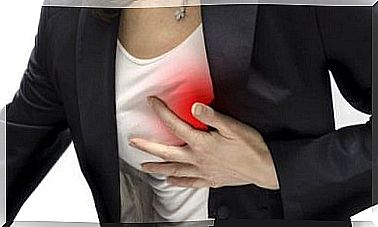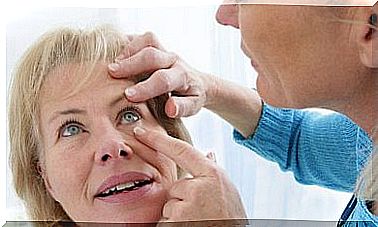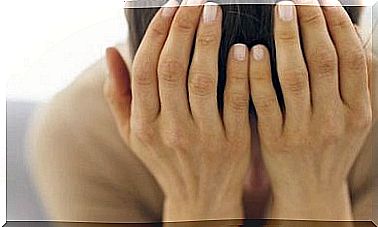Slow Breathing – Causes And Treatment

Slowing your breathing is when you breathe at less than normal frequency. Breathing is obviously a gas exchange process in the lungs. Thanks to it, the body releases carbon dioxide and receives oxygen.
Oxygen is essential for the proper functioning of cells. When we breathe more slowly than usual, carbon dioxide builds up and oxygen levels drop, which can have complex consequences.
There are many reasons for slowing your breathing, and not all of them are dangerous. In certain situations, however, it can lead to complications. Find out more about it.
What is slowing down of breathing?
The Latin name for this problem comes from the Greek words b radys and pnein, meaning slow breathing. This term refers to a lower than normal respiratory rate.
The normal frequency depends on a person’s age and activity level. For an adult, it is 12 to 20 breaths per minute. When you take less than 12 breaths per minute, it is referred to as slower breathing.
Moreover, such a state must persist for more than 2 minutes. This problem is sometimes confused with apnea and shortness of breath.
Dyspnoea is difficulty in breathing caused by the feeling of lack of air. Apnea, on the other hand, is a temporary cessation of breathing. Both slower breathing and apnea occur in some people when they are asleep.
The opposite of slowing down your breathing is making it faster. You then breathe more often than usual, which can lead to trouble. More than 25 breaths per minute are considered abnormal.
One of the most common causes of slower breathing is alcohol poisoning. However, the reasons may also be different.
What causes my breathing to slow down?
The slowness of breathing is not a disorder as such, but a symptom of specific conditions. As already mentioned, its main cause is alcohol poisoning.
Alcohol affects the respiratory center and inhibits it. This slows down your breathing. However, it is not the only substance that causes this problem. Some drugs, such as opioids, work in a similar way.
The combination of benzodiazepines with alcohol is one of the most important risk factors. Benzodiazepines are sedatives that are often used by patients.

Other substances
Your breathing can slow down as a consequence of ingesting many substances such as carbon monoxide.
It is often used by suicides. It causes death by poisoning and respiratory arrest. Certain medications used in surgical procedures can slow down your breathing. These include muscle relaxants (usually benzodiazepines), anesthetics, and opioids. Therefore, after their application, observation of the patient is necessary.
Nervous system problems
Breathing is a complex process that involves different parts of the brain. Conscious breathing is controlled by the brain. But there are also respiratory centers in the brain stem.
These centers are responsible for keeping breathing under specific conditions when brain function is altered, for example due to trauma or a tumor. The breathing controlled by these centers, however, is slowed down.
Electrolyte and hormonal imbalances
Many factors affect the frequency and depth of breathing. Slower breathing can be the result of electrolyte imbalances such as potassium or calcium.
It also occurs in some metabolic disorders, such as hyperthyroidism. Thyroid hormones are responsible for regulating metabolism and body temperature. When their levels are lowered, breathing also slows down.
Slow breathing: risk factors
Certain factors increase your risk of slower breathing. These include old age, smoking, and cardiovascular disease. It may also be due to a state of shock.
Low body temperature (hypothermia) and strenuous physical activity also lead to slower breathing. In the latter case, there is no need to worry.
Symptoms and complications
Slowing down your breathing changes the levels of oxygen and carbon dioxide in your body. Most of the symptoms associated with it are caused by oxygen deficiency. Then fatigue, weakness and dullness appear.
Moreover, there are dizziness and fainting. Headache and chest pain are also common, as are poor coordination and memory problems.
The oxygen deficit in the blood can lead to complications. This is called hypoxemia. According to an article in Bell Marra Health, slower breathing results in fainting and heart problems.
Tissues and organs can be seriously damaged. In more serious cases, there is cardiac arrest and garbage. Other problems include respiratory acidosis and hypercapnia (high levels of carbon dioxide in the blood).

Treatment
Slowing down of breathing does not need to be treated. It is usually a non-invasive condition that occurs in dreams or in athletes. However, it is worth excluding the danger and looking at the causes and circumstances.
Intervention is needed when slowing down your breathing is related to a heart problem. The body needs certain amounts of oxygen. It may be necessary to artificially deliver it.
Toxin-induced slowing of breathing also requires medical attention. Sometimes you need to use an antidote to a hazardous substance. In case of benzodiazepine poisoning, fulmazenil is administered.
Slowing down your breathing is not a disease
It is worth re-emphasizing that slowing down your breathing is reducing your breathing rate to less than 12 breaths per minute for more than two minutes.
There are many causes for this symptom, including alcohol and drug poisoning. It may also be the result of other disorders. Not all cases are dangerous, but it is always worth determining the cause of the condition.









